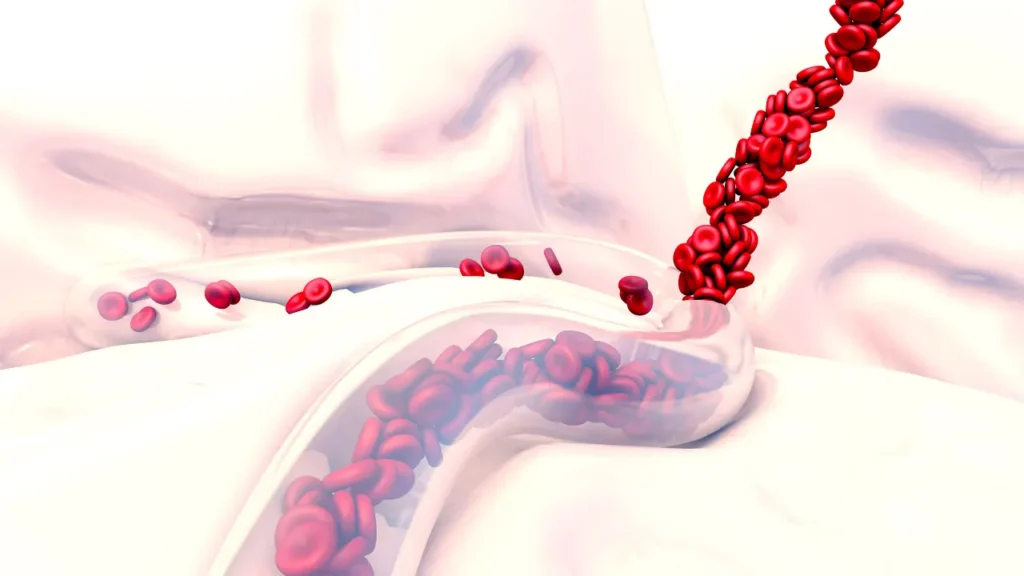Alpha-ketoglutarate (AKG), a dietary supplement with a number of potential health benefits, has recently attracted notice. In many biological processes, this naturally occurring chemical serves as an essential mediator in the Krebs cycle or the tricarboxylic acid (TCA) cycle. The purpose of this article is to provide a full analysis of the chemistry of AKG, as well as details on its health benefits, suggested dosage, unfavorable side effects, potential drug interactions, and appropriate use as a nutritional supplement.
You May Also Like:
The Best Mushroom Supplements for Memory: 5 Top Brands Reviewed
5 Things to Consider When Choosing the Best Mushrooms for Mental Health
ALPHA-KETOGLUTARATE: Benefits, Dosage, Side Effects, Drug Interactions, and Other Important Information is an original (NootropicsPlanet) article.
Nature of Alpha-Ketoglutarate
A naturally occurring substance called alpha-ketoglutarate can be found widely in nature including animals, plants, and microbes. AKG is primarily produced in the liver of humans and is found in organs with high metabolic activity, including the brain, heart, and muscles. AKG is a crucial aspect of cellular metabolism and energy generation since it is a crucial intermediary in the TCA cycle and takes part in many biological processes and pathways.
Health Benefits of Alpha-Ketoglutarate
Production of energy:
AKG is necessary for the creation of ATP, which drives a variety of cellular functions, as an intermediary in the TCA cycle. By supplying a direct source of fuel for the TCA cycle, supplements like AKG may improve energy levels, especially during times of elevated physical or mental effort.
Muscle synthesis of proteins and recovery:
AKG is a crucial element in protein metabolism because it participates in the synthesis of amino acids. AKG supplementation has been found in studies to increase muscle recovery after intensive exercise by increasing protein synthesis. AKG may aid in maximizing muscle growth and repair by increasing the availability of amino acids for protein synthesis.
Age-defying results:
According to research, AKG may have anti-aging properties through altering cellular processes involved in aging, such as the mTOR and AMP-activated protein kinase (AMPK) pathways. For example, AKG increased the lifetime of the Caenorhabditis elegans nematode by suppressing mTOR signaling and fostering autophagy. AKG supplementation also extended the longevity of mice by activating the AMPK system and enhancing mitochondrial activity.
Neuroprotective effects:
AKG has been demonstrated to have neuroprotective properties, which may be advantageous in the context of neurodegenerative illnesses like Parkinson’s and Alzheimer’s. AKG can shield neurons against glutamate-induced excitotoxicity, which is a major contributor to the emergence of neurodegenerative diseases. In a rat model of Alzheimer’s disease, it was also discovered that AKG supplementation could improve cognitive impairments and lower oxidative stress.
Enhanced physical performance:
By boosting ATP availability, decreasing ammonia buildup, and enhancing blood flow, AKG may enhance exercise performance. AKG supplementation significantly decreased blood ammonia levels and increased exercise tolerance in patients with chronic renal insufficiency. AKG supplementation also enhanced nitric oxide synthesis which could improve exercise performance by improving blood flow to working muscles.

Chemistry of Alpha-Ketoglutarate
The organic acid alpha-ketoglutarate (AKG), also referred to as 2-oxoglutarate, takes part in the TCA cycle in the mitochondria. It is a five-carbon compound that is created when glutamate is delaminated by transaminases or glutamate dehydrogenases. AKG is a keto acid because of its structural composition, which consists of a ketone and a carboxyl group. Its structural elements comprise a core carbon atom that is double-bonded to an oxygen atom, three carboxyl groups, and a single hydrogen atom. Its chemical formula is C5H6O5.
The alpha-ketoglutarate dehydrogenase complex oxidative decarboxylates AKG in the TCA cycle, producing succinyl-CoA and carbon dioxide. The production of adenosine triphosphate (ATP) which is the main source of energy for cells, depends on this process. AKG is also essential for cellular metabolism, which includes the synthesis of amino acids, the urea cycle, and the gluconeogenic process that produces glucose.
Physiological Mechanisms of Action of Alpha-Ketoglutarate
Production and Metabolism of Cellular Energy:
The main physiological function of AKG is as a crucial intermediate in the TCA cycle, where it is broken down by the alpha-ketoglutarate dehydrogenase complex into succinyl-CoA and carbon dioxide. This process will lead to the production of ATP. Hence, AKG supplementation improves cellular energy production by offering a direct substrate for the TCA cycle.
Protein Synthesis and Amino Acid Metabolism:
Amino acids like glutamate, praline, and arginine are among the amino acids that are metabolized by AKG. AKG is necessary for the production of non-essential amino acids and the interconversion of amino acid carbon skeletons because it takes part in transamination processes. As a result, by assuring the availability of the amino acids needed for these activities, AKG supplementation may enhance protein synthesis and muscle repair.
Synthesis of Nitric Oxide:
By acting as a substrate for the nitric oxide synthase (NOS) enzyme, AKG can boost the synthesis of nitric oxide. Increased levels of nitric oxide can improve blood flow to muscles, nutrient supply, and waste elimination. This may lead to an improvement in exercise performance and recuperation.
Altering Cellular Signaling Pathways:
AKG may influence several cellular signaling pathways, including the mTOR and AMPK pathways. AKG can increase autophagy, improve mitochondrial function, and lengthen longevity by blocking mTOR signaling and activating AMPK. By acting as a substitute substrate for glutamate dehydrogenase and lowering the intracellular accumulation of glutamate, AKG can also shield neurons from glutamate-induced excitotoxicity.
Thus, it is safe to say that alpha-ketoglutarate is a versatile chemical with a variety of physiological functions and potential health advantages. Individuals and healthcare professionals can make educated judgments about the potential inclusion of AKG into a holistic health and wellness strategy by studying its chemistry, physiological mechanisms of action, and appropriate use as a dietary supplement.


Optimal Dosage of Alpha-Ketoglutarate
There is no widely agreed ideal dosage of AKG for everyone. The dosage is dependent on multiple factors including age, sex, health status, and specific goals of supplementation. However, doses ranging from 1 to 10 gm per day have been employed in the majority of research looking at the health advantages of AKG supplementation.
For instance, 2-5 gm of AKG taken 30–60 minutes prior to exercise has been recommended to improve exercise performance. A dosage of 1-3 gm per day has been suggested for protein synthesis and muscle rehabilitation. Long-term supplementation at lower levels (1-2 gm per day) may be more suitable in the context of aging and neuroprotection.
Before beginning AKG supplementation, it’s crucial to speak with a medical practitioner to establish the best dosage based on each person’s needs and objectives.
Side Effects of Alpha-Ketoglutarate
AKG is typically regarded as safe and well-tolerated, with minimal side effects having been noted. Following AKG administration, moderate gastrointestinal symptoms such as gas, bloating, and diarrhea have occasionally been documented. By beginning with a lower dosage and gradually raising it as tolerated, these adverse effects—which are typically temporary—can be reduced.
AKG occasionally causes allergic responses; symptoms include rash, itching, and breathing difficulties. Immediately stop the use of the supplement and seek medical advice if any of these symptoms appear.


Potential Substance Interactions with Alpha-Ketoglutarate
AKG supplementation has not been associated with any significant drug interactions, however, it is always advisable to speak with a doctor before taking AKG together with other drugs or supplements.
The usage of AKG in conjunction with nitric oxide precursors like L-arginine or L-coralline raises the possibility of an interaction. Combining these supplements may have additive effects and might result in excessive vasodilation, which could result in hypotension or other negative effects because AKG has been proven to boost the production of nitric oxide.
Responsible Use of Alpha-Ketoglutarate as a Nutritional Supplement
It is crucial to follow the rules of safe use when thinking about taking AKG supplements. This includes:
- Speaking with a medical expert to establish the right amount and timeframe for supplements based on unique needs and objectives.
- To reduce the possibility of adverse effects, start with a lower dosage and gradually increase it as tolerated.
- Keeping an eye out for any symptoms of allergic reactions or other side effects, and stopping use as necessary.
- Before mixing AKG with other medications or supplements, taking into account possible substance interactions and consulting a healthcare practitioner is advised.
ALPHA-KETOGLUTARATE:
Conclusion
Alpha-ketoglutarate (AKG) is a key metabolite involved in the Krebs cycle, contributing to energy production and participating in various cellular processes. AKG has garnered attention recently as a potential supplement for enhancing athletic performance and supporting overall health. AKG is favored by athletes because of their ability to produce and metabolize cellular energy and also engage in protein synthesis. These reactions aid in improving muscle recovery and performance which is much needed by athletes.
However, the complexity of the body’s biochemical processes involving AKG is yet to be fully discovered. Hence, if you are looking for AKG supplements to improve your fitness journey, be sure to check with your doctor to prevent any unwanted side effects. You also need to choose wisely when it comes to the brand or sources of those supplements.


References:
- Alpha-Ketoglutarate Dietary Supplementation to Improve Health in Humans. Retrieved from: https://pubmed.ncbi.nlm.nih.gov/34952764/
- Alpha-Ketoglutarate as A Potent Regulator for Lifespan and Healthspan: Evidences and Perspectives. Retrieved from: https://pubmed.ncbi.nlm.nih.gov/36934991/
- The Physiological Basis and Nutritional Function of Alpha-Ketoglutarate. Retrieved from: https://pubmed.ncbi.nlm.nih.gov/26122777/
Important Note: The information contained in this article is for general informational purposes only, and should not be construed as health or medical advice, nor is it intended to diagnose, prevent, treat, or cure any disease or health condition. Before embarking on any diet, fitness regimen, or program of nutritional supplementation, it is advisable to consult your healthcare professional in order to determine its safety and probable efficacy in terms of your individual state of health.
Regarding Nutritional Supplements Or Other Non-Prescription Health Products: If any nutritional supplements or other non-prescription health products are mentioned in the foregoing article, any claims or statements made about them have not been evaluated by the U.S. Food and Drug Administration, and such nutritional supplements or other health products are not intended to diagnose, treat, cure, or prevent any disease.
